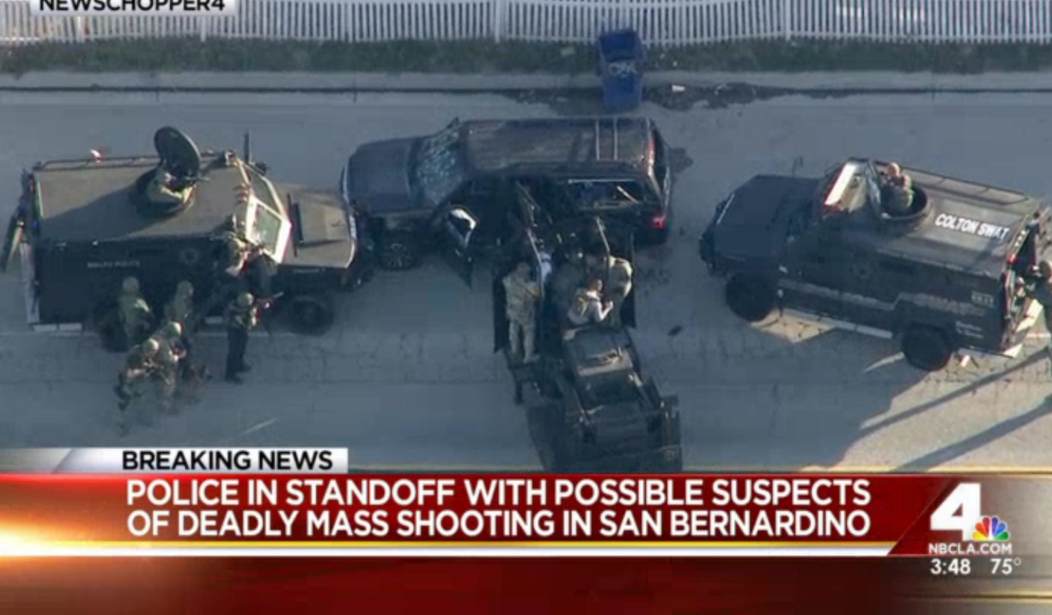Shooting suspect Tashfeen Malik passed a DHS counterterrorism screening as part of her vetting for a K-1 fiancee visa last year, but barring any criminal or terrorist background there was little chance DHS would have been able to detect whether she had become radicalized.
Syed Farook, the other half of the terror duo, reportedly got engaged to 27-year-old Pakistani national Malik during a trip overseas in 2014.
Co-workers recalled Farook telling them that he met his wife online and was making a trip to Saudi Arabia to marry her.
He spent nine days in Saudi Arabia in the summer of 2014, according to the Saudi Embassy in Washington, D.C.
When Farook returned to the U.S. in July 2014, he brought Malik on a so-called fiancee visa, law enforcement officials said. They subsequently married and she was granted a conditional green card last summer.
In order to obtain the green card, the couple “had to prove that their marriage was legitimate, and Ms. Malik had to provide her fingerprints and pass criminal and national security background checks using F.B.I. and Department of Homeland Security databases.”
If Malik was a radicalized Muslim in 2014, but had left no criminal or terrorist footprint, there was little chance the Department of Homeland Security would have picked up on it when she was vetted.
As Kerry Picket at the Daily Caller reported last month, Obama administration counterterrorism officials have trained DHS law enforcement officers to focus on the behavior of people entering the United States, rather than their political, ideological, or religious background.
DHS’s civil rights division released a “Countering Violent Extremism Training” best practices document for federal, state, and local government and law enforcement officials in October 2011.
The document calls for training programs that are not “overbroad, equating an entire religion, nation, region, or culture with evil or violence, For example, it is incorrect and damaging to assert that all Muslims have terrorist ties.”
Instead, the training encourages to “ensure that it uses examples to demonstrate that terrorists span ethnicity, race, gender, and religion.”
National security consultant David Reaboi told the Daily Caller that screeners are trained not to ask about key identifiers that would allow them to spot Islamic terrorists who want to do harm to America.
“Because ISIS, al Qaeda and the Muslim Brotherhood understand themselves in precisely those ways, they’re prevented from asking anything meaningful beyond, ‘are you a terrorist?’” Reaboi explained.
“‘Are you a member of the Muslim Brotherhood? What school of Islamic law do you follow? Where do you go to mosque? Do you believe someone who insults Islam deserves to be killed? Would you like to make America an Islamic country?’ All of these questions — the most important ones — are off-limits,” Reaboi said









Join the conversation as a VIP Member